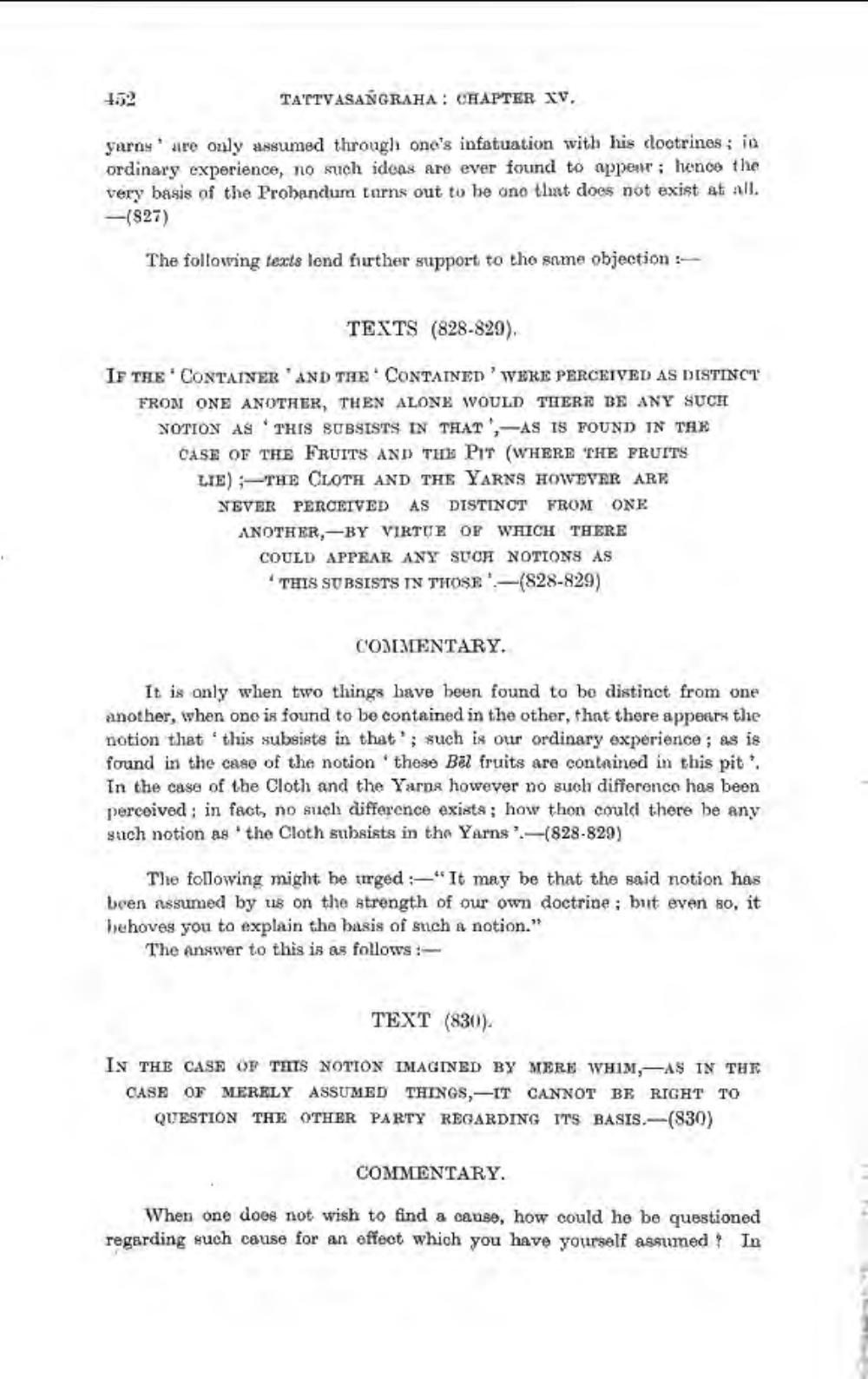________________
TA'TTVASANGRAHA: CHAPTER XV.
yarns are only assumed through one's infatuation with his doctrines; in ordinary experience, no such ideas are ever found to appear; hence the very basis of the Probandura turns out to be one that does not exist at all. -($27)
The following texts lend further support to tho some objection :
TEXTS (828-829),
IF THE CONTAINER AND THE CONTAINED 'WEKE PERCEIVED AS DISTINCT FROM ONE ANOTHER, THEN ALONE WOULD THIERZ BE ANY SUCH NOTION AS THIS SUBSISTS IN THAT',-AS IS FOUND IN THE CASE OF THE FRUITS AND TU Pir (WHERE THE FRUITS LIE) ;THE CLOTH AND THE YARNS HOWEYER ARE NEVER PERCEIVED AS DISTINCT FROM ONE ANOTHER,-BY VIRTUE OF WHICH THERE COULD APPEAR ANY SUCH NOTIONS AS
THIS SUBSISTS IN THOSE':-(828-829)
COMMENTARY.
It is only when two things have been found to be distinct from one another, when one is found to be contained in the other, that there appears the notion that this subsists in that'; such is our ordinary experience ; es is found in the case of the notion these Bël fruits are contained in this pit? In the case of the Cloth and the Yarns however no such difference has been perceived: in fact, no such difference exists; how thon could there be any such notion as the Cloth subsists in the Yarns'.-(828-829)
The following might be trged :-“It may be that the said notion has been assumed by us on the strength of our own doctrine ; but even so, it behoves you to explain the basis of such a notion."
The Answer to this is as follows:
TEXT (830).
IN THE CASE OF THIS NOTION IMAGINED BY MERE WHIM, AS IN THE CASE OF MERELY ASSUMED THINGS, --IT CANNOT BE RIGHT TO
QUESTION THE OTHER PARTY REGARDING ITS BASIS.-(830)
COMMENTARY.
When one does not wish to find a cause, how could he be questioned regarding such cause for an effect which you have yourself assumed In




